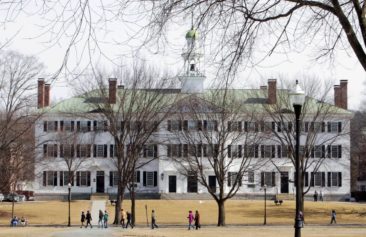
EW.com
Actress and talk show host Aisha Tyler encourages Black students to attend universities where racism openly occurs.
Speaking about her experience at the Ivy League Dartmouth College, Tyler tells MONEY African-American teenagers should step out of their comfort zone.
“Don’t pick a college that replicates what you did in high school,” she tells the website. “Test yourself in an unfamiliar context so that you can learn to succeed no matter where you are placed so that you know you can excel.”
Tyler believes increased Black attendance at white schools will change racist attitudes. She points to an incident that occurred at her alma mater the year before she enrolled at the Hanover, New Hampshire college. During an anti-apartheid demonstration, students built a shantytown that was later knocked down by ultra-conservatives.
She admits, “It’s not for everybody. You have to decide what you can tolerate. But my great-great-great-great- grandfather escaped slavery in Texas and eventually went back into post-reconstruction Texas and built a successful business. What would we be like if Black people didn’t go into the heart and didn’t try to change things? We would have made no progress in the country. Bravery is the engine of change.”
As racist incidents continue to occur on college campuses, some Black students have taken a stand.
A student at Southern Illinois University confronted racist Donald Trump supporters who told her to “go back to Africa.” And at Duke University, protests erupted demanding three administrators be removed after the executive vice president hit a Black woman with his car and called her the N-word.
Still, historically Black institutions may be a better option for many African-American students. Joshua Crutchfield, a Middle Tennessee State University graduate student, believes HBCUs will cater to Black intellectuals’ needs. Even still, he continues to combat institutional racism at his predominately white university.


